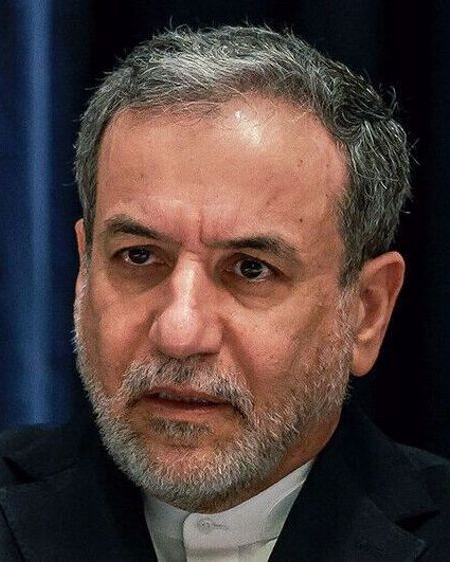
Iran's Foreign Minister Abbas Araghchi
Tehran, October 18 (RHC)-- Iranian Foreign Minister Abbas Araghchi has strongly condemned an irrelevant and meddlesome statement issued against Iran at the end of a joint meeting of the heads of state of the European Union (EU) and the Persian Gulf Cooperation Council (GCC).
The top diplomat made the remarks in a post on X, formerly Twitter, on Thursday after the meeting came up with the statement that accused the Islamic Republic of “occupation” of the triple Iranian islands of Greater Tunb, Lesser Tunb, and Abu Musa, and claimed that the islands belonged to the United Arab Emirates.
“The EU-GCC Summit Joint Statement on Iran carries many messages,” the post read. “To us, it is becoming clear that path of respectful cooperation we offered in several meetings, including in New York, is being met with European desire for confrontation—including via absurd accusation that Iran is engaged in ‘occupation,’” it added.
“The three islands have always belonged to Iran, and will forever remain as such,” the foreign minister asserted, noting, “Era of European malign 'divide & rule' interference in our region is long over.”
The three Persian Gulf islands have historically been part of Iran, proof of which can be found and corroborated by countless historical, legal, and geographical documents in the country and other parts of the world. However, the UAE has repeatedly laid claim to the islands.
Iran says the three islands of Abu Musa, the Greater Tunb and the Lesser Tunb in the Persian Gulf are inseparable parts of its territory. The islands fell under British control in 1921 but on November 30, 1971, a day after British forces left the region and just two days before the Emirates was to become an official federation, Iran’s sovereignty over the islands was restored.
Iran’s Foreign Ministry spokesman Esmaeil Baghaei also reacted to the anti-Iranian statement, denouncing its “baseless” claims that, he said, marked a disregard for the United Nations Charter, particularly its principle of respect for state sovereignty and territorial integrity.
The islands “are and will remain an integral part of Iranian territory,” he added, noting that the country “exercises its full sovereignty and jurisdictional rights over these Iranian islands.” “The use of misleading concepts or the repetition of false and deceptive claims about this vital part of the Iranian land will not change the reality of the matter.”
Baghaei regretted that regional leaders had averted their focus from the Muslim world’s “most pressing issue,” namely the Israeli regime’s ongoing genocidal war on the Gaza Strip and its deadly escalation against Lebanon.
The leaders in question, he suggested, should have rather used the meeting to hold the European countries, some of which are among the main purveyors of military and political support for the apartheid regime, accountable and press them for bringing pressure on the regime to end its aggression.
Baghaei also commented on the meeting’s stressing “the importance of ensuring the peaceful nature of the Iranian nuclear program, and ceasing of proliferation of ballistic missiles and unmanned aerial vehicles.”
He emphasized the country's commitment to peaceful nuclear activities, dismissing allegations against its nuclear energy program as unfounded and malicious.
The head of the Atomic Energy Organization of Iran (AEOI) calls sanctions the tool used by the global imperialist system to reduce independent nations into submission.
He also underlined the importance of the country’s defensive capabilities as an imperative means of its exercising its right to self-defense and deterrence against wayward and warlike parties as well as a means of protecting regional security and stability.
“The Islamic Republic has invariably adopted a responsible approach and stayed committed to the principles of the international law and the UN Charter, and has never used its military capabilities unless for legitimate defensive purposes.”

